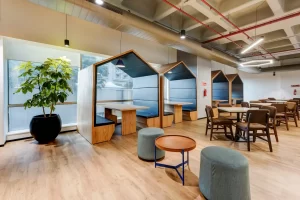Taking a Personal Interest in Your Guests

Making guests feel special by taking an interest in what makes their area special can go a long way towards building loyalty. Just taking time for friendly conversation could go a long way towards making them feel valued!
Narratives are another great way to add depth and intrigue to your tours, keeping audiences engaged while helping them remember what was said.
Definition
Tourists are people who travel outside their usual environment for purposes other than business or employment; see definition of travel for more details. Tourism encompasses an assortment of activities and services designed to appeal to tourists; examples include art and culture tourism, ecotourism, heritage tourism, agritourism, dark tourism and adventure tourism.
Recently, media portrayals of tourists have increasingly taken on an antagonistic tone, even among academic writers who may prefer more “authentic” forms of travel such as backpacking.
Longstanding activities associated with tourism have included grand tours of cultural sites throughout Europe or pilgrimages to graves and battlefields during European wars, while newer trends like medical tourism take advantage of price differences between countries for certain medical procedures.
Meaning
Tourists are defined as individuals who travel for recreational or cultural purposes such as shopping, entertainment, visiting cultural and historic attractions or relaxing. Tourism provides an environment in which people can discover new things while discovering different cultures, languages and natural wonders.
There is no universal definition of tourism; some studies refer to someone as being in tourism if they have left their normal environment for less than one year; other criteria could include number of nights away from home.
Tourism refers to anyone visiting events like music festivals or marathons for recreational reasons, which is considered sustainable tourism as it allows people to learn more about a culture while helping boost local economies. Travel outside one’s immediate environment for leisure purposes was historically limited to wealthy classes only.
Examples
Tourism attracts many people each year. Tourists can also be an income stream for local businesses; for instance, woodcarvers may make their living selling their wares directly to tourists. Finally, tourists play an integral role in cultural preservation – museums may collect funds from tourists as a source of renovation funds.
In some countries, irresponsible tourists can cause significant damage to tourist attractions by littering or vandalizing them. They also engage in activities which contribute to exploitation by riding elephants or visiting orphanages.
To protect biodiversity, it is crucial that tourists adopt a positive view of conservation. This can be accomplished with a conservation education program and increased visitor guidelines; additionally, organic products could improve tourist perception of biodiversity – offering an attractive alternative to using monetary incentives as part of our current strategy.
Origin
Tourism was coined at the end of the 18th century, yet travel has always been important. Ancient Greeks and Romans were cultural tourists in many ways – traveling to see Seven Wonders of the World and worship at sacred sites around their world.
Modern tourism was introduced during the 19th century, when industrialization gave people more leisure time. Travel became more common, and travel agencies flourished. Thomas Cook ran a temperance club in Market Harborough, England and organized one of the first commercial day trips by train for temperance supporters and Sunday school students to travel to Liverpool from that location.
Tourist is derived from Latin words for turning or touring, which refers to how travelers toured from place to place on their journeys. Its roots also lie with Old French tour, turista and Spanish turismo words used as well as hospitality from Latin hospes (to give one example).








